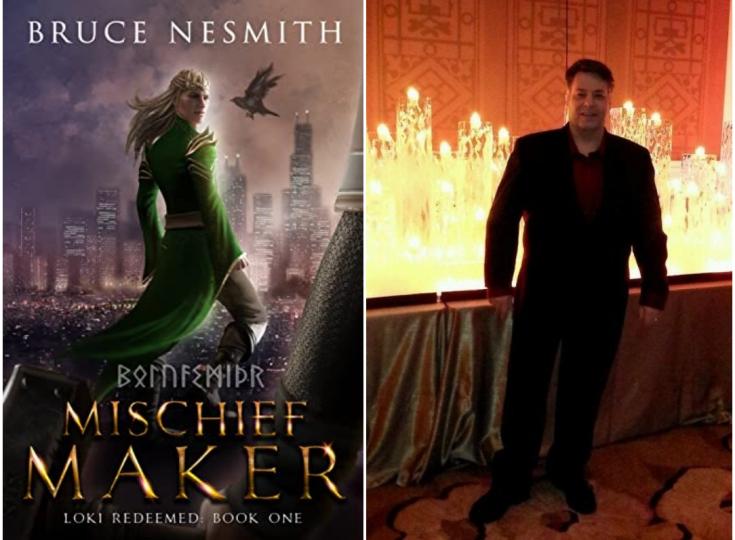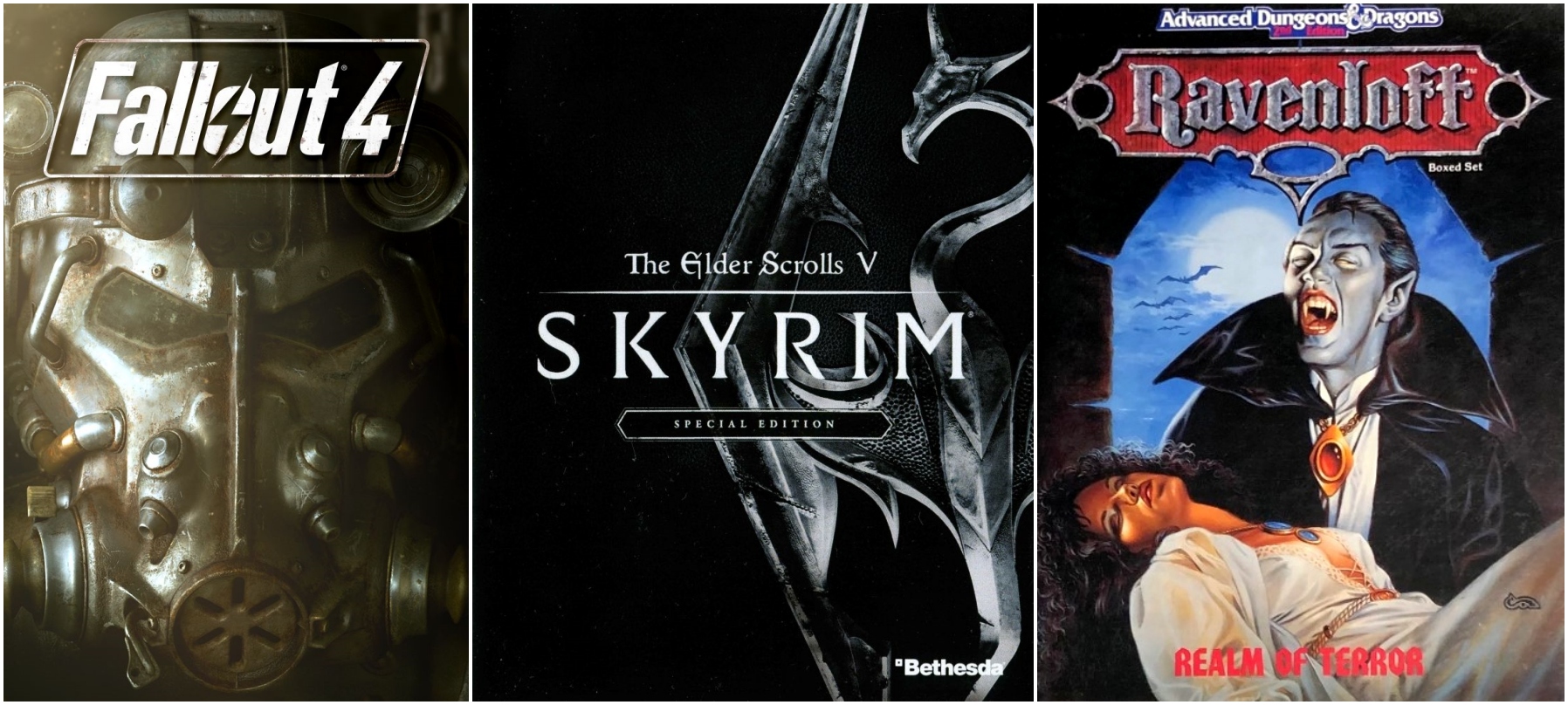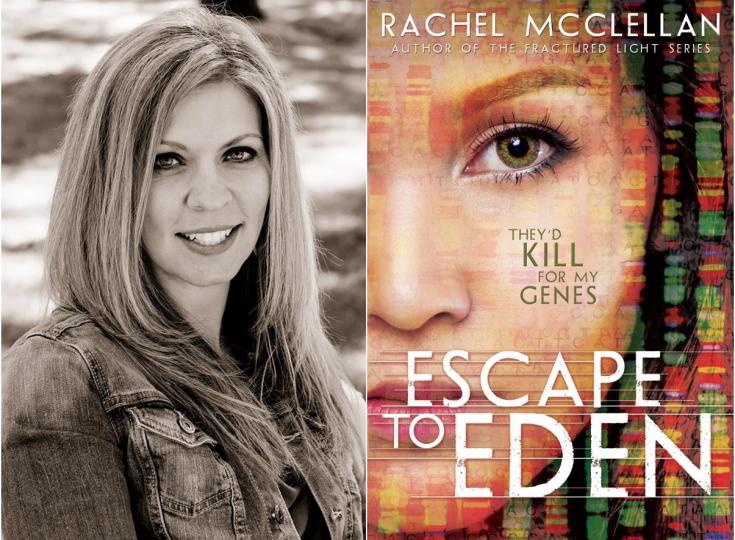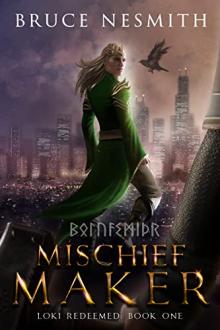Bruce Nesmith - Magic, Mythology, Humor and Action

Bruce Nesmith was Creative Director at TSR, working on a variety of games including Dungeons & Dragons, and is a senior game designer at Bethesda Game Studios, where he has worked on AAA titles such as Fallout 3, Fallout 4 and Elder Scrolls IV: Oblivion, and was lead designer on Elder Scrolls V: Skyrim. As our Author of the Day, he tells us about his book, Mischief Maker: A Norse Mythology Contemporary Fantasy.
Please give us a short introduction to what Mischief Maker: A Norse Mythology Contemporary Fantasy is about.
The protagonist in Mischief Maker is Loki. This is the Loki of the Norse myths, not the movies or comics. He's hiding out on Earth, working as a stage magician in the suburbs when an attempt on his life drags him back into Asgard and the Nine Realms. He needs to recover his lost magic and find out who is trying to kill him and why. Ultimately, he'll have to stop Thor and the aesir from starting another Ragnarok.
Tell us more about Loki. What makes him tick? And how is he different from the Loki in the Marvel universe?
I'm a fan of the saying "victors write the histories," which applies to the Norse gods. With Loki in exile, the story is told that he is the villain. However, many of the stories have been twisted to read that way. Loki is certainly no saint, but neither are the other gods. He struggles with the meaning of being a god. Does having some special powers make you divine? He denies his own godhood, insisting he is just a person with extraordinary abilities, and that the aesir foisted themselves on the Vikings as divine beings.
You are a senior game designer at Bethesda and have also worked on other role-playing games, including Dungeons and Dragons - how has this influenced your writing?
Thanks to my career, I've spent much of my life making fantasy and science fiction stories. I've learned a lot about world-building, which came in very handy for creating a modern interpretation of the Nine Realms and how magic would work. My years at Bethesda Game Studios honed my ability to write dialogue, which has also served me well. The whole premise of tabletop gaming and RPG video games is to immerse the player and make him feel like he is in a novel or movie. Now I'm just writing those novels.

In which way is writing a book different from writing for a game?
When you write a game adventure, you have to give the player free agency. It's their adventure, and they should be able to play it the way they want. In a novel, the main character takes on that role. You have to write to what that specific character would do, and not worry about all the other possibilities. I've also found that game players tend to be much more mercenary. Their actual lives and relationships are not on the line, and they can take risks and be Machiavellian in ways that aren't realistic. I pride myself on having the characters of my novels do the things that make sense, rather than force them to do something stupid or counter to their personality just to drive the plot.
Besides writing, what other secret skills do you have?
I like to grow carnivorous plants. I have a small garden of venus flytraps, pitcher plants and sundews. I am also a certified swimming referee and spent fourteen years running swim meets. I've always had a love affair with astronomy and finally bought a decent telescope and enjoy pointing it at planets and galaxies.
Why did you pick modern-day suburbs as the starting backdrop for your story?
I grew up in the suburbs, in particular, Arlington Heights where the novel opens. However, even more important, the suburbs define bland, ordinary life for most people. They are thought of as more boring than either rural or urban living. What better place to put someone who is the antithesis of boring and ordinary? What better place for a Norse god in exile to hide?
What fascinates you about Norse mythology?
I've always been fascinated with Norse mythology, which I began reading in elementary school. The Vikings treated their gods as people that frequently did silly or stupid things. The Norse myths frequently read more like the American tall tales of Paul Bunyan and Pecos Bill than divine stories. For my novels, I dove deep in the historical lore and academic analysis of Norse mythology. What I learned is that mythology doesn't stand still. It changes and evolves with time. Norse mythology is subtly different in Iceland than in Norway than in Denmark. The Vikings didn't write down their stories for us. Most of what we know is from outside historians, like Snorri Sturluson from the 12th and 13th centuries. Yet in several cases, you can see how he viewed and recorded the oral traditions through the lens of Christianity. This is a long-winded way of saying that I used many of these ideas to write my books. The idea that the stories might not be accurate and are tainted by those to recorded them is central to how I built my fantasy version of the Nine Realms and its characters.
This is Book 1 of the Loki Redeemed series. Can it be read as a standalone? How do the other books in the series tie in with this one?
Each book tells its own story and completes it. There are no cliffhangers, but the epilogues do tease what is coming next. I made sure to explain references to previous novels, so you could read them independently. However, I think you would be missing some of the character development and continuity. The stories do build upon one another without depending on each other.
You wrote this book in first person perspective - why did you take this approach?
It's probably due to my gaming background. To write gaming stories well, you need to put yourself into the mind of the player, to see the world through his or her eyes. For me, first person is more immersive, allowing you to more easily see inside the mind of the protagonist. The plot unfolds for the reader the way it does for the main character.
Readers say your characters are very relatable, how do you pull this off? Are they inspired by people you know?
I wish they were inspired by people I know. That would be cool! Real people are complex and imperfect. They experience happiness, sorrow, anger, and love. I tried to make sure my characters were three-dimensional in all respects. Loki tries to be a good person, but he's not always successful. He goes through all those emotions in the course of his story arc. The people around him are fully formed, with their own perspectives and narratives. I tried to make the dialogue feel like real conversations between real people.
Did you plan out all of the plot twists in the story before you started writing, or did some of it just "happen" along the way?
I'm a plotter, not a pantser. So I had most of the plot laid out in advance. In particular, I knew how it had to end. Yet as I wrote the story, I tried to keep things feeling right and natural. On occasions that meant I needed to change the plot accordingly. Ralph Waldo Emerson's "A foolish consistency is the hobgoblin of little minds" is another favorite saying of mine. I try not to get so locked down on any specific plot point or character attribute that I can't change it when necessary.
Readers loved Muninn - what, would you say, made this raven such a great companion for Loki?
Muninn doesn't take any crap from Loki. He regularly points out when Loki is being foolish or pig-headed. In a way, he's Loki's conscience and a person for him to talk to in more solitary moments. His personality is the near opposite of Loki's providing great contrast. Muninn has almost no sense of humor, is highly judgemental and aloof.
Do you have any interesting writing habits? What is an average writing day like for you?
After a casual breakfast with my wife, where we play Wordle separately and Quordle together, I head to the computer and play video games and online board games for about half an hour. Then I start writing. I'm good at tuning out background noises, much to my wife's dismay when she tries to talk to me, but I can't write with music on. Don't ask me to explain it. I'm usually done by early or midafternoon and spend the rest of the day doing things with her or generally goofing off.
What are you working on right now?
I'm playing with a science fiction story at the moment. Unlike a lot of other authors, I'll probably dabble in a few genres rather than rigidly stick to one. It's probably not the smartest strategy, but I'd rather write something I'm passionate about than force myself to stretch out my previous works.









